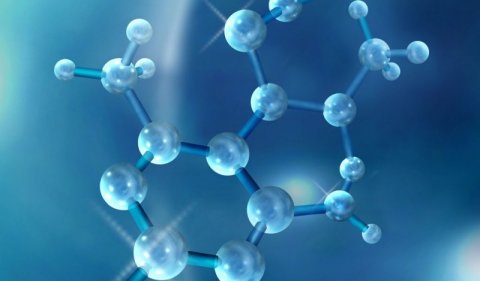A team of authors of South Ural State University created the newest virtual laboratory for materials science which has no analogues in Russia. The use of the virtual laboratory eliminates the need to buy expensive equipment for training of high-level specialists.
Computer technology performs training of cadres
With the development of educational computer technology, the question about the necessity of partial or complete transition of practical classes from laboratories to computer labs gets discussed more and more frequently. Nowadays, virtual education complexes get created for many disciplines, but the invention of SUSU scientists for materials science is the only one in Russia. One of the authors of the project entitled “Virtual Laboratory: Materials Science” is a postgraduate student of SUSU’s Polytechnic Institute, Tatiana Lisovskaya.
“Virtual laboratory is an information system which performs interactive simulation of a real technology object and provides a great possibility to study its properties through computer visualization. Our invention allows a student to “carry out” experiments in a virtual analogue of research laboratory. The program that we created is a complex consisting of several laboratory works for studying a course of materials science,” says Tatiana Lisovskaya.
.jpg)
Photo: virtual laboratory
Attention to details
Study plans of engineering universities, colleges and institutes pay a lot of attention to the course of Materials Science. Nevertheless, small education institutions often can’t provide the possibility to “touch” real equipment and materials with one’s own hands. In this case, 3D computer simulation comes to aid.
“When creating the virtual version of laboratory programs, a lot of attention was focused on similarity of virtual and real-life equipment,” emphasizes Tatiana Lisovskaya. “We used the real equipment of SUSU laboratories as a sample: kilns, hardness gauges, microscopes, etc. Their 3D models were sketched in real-life size, some even in real colors. We can say that basically the only distinction of virtual laboratory works from the real ones is their execution with the use of a computer.”
As an environment for the project implementation, a multi-platform Unity3D game engine was used as it perfectly proved itself when developing two- and three-dimensional applications and games and working under the operating systems Windows and OS X.
.jpg)
Practical works supported by theory
“Execution of a virtual laboratory work should start with a review of procedural guidelines,” says Tatiana Lisovskaya. “Even though there is no real danger in incorrect sequence of operations, students will be warned against virtual dangers by messages provided by the software and displayed at the monitor.”
Virtual laboratory work, just like the real one, has detailed procedural guidelines for its completion. The program includes theoretical blocks and knowledge assessment blocks. Due to the thoroughly elaborated course, students will receive a sufficient amount of theoretical and practical knowledge on the discipline of Materials Science in the course of 15 laboratory works.
Tatiana Lisovskaya successfully combines studying at South Ural State University with working at the Uchtech-Profi enterprise which is an acknowledged leader at the CIS’s market in development, serial and small volume manufacturing of innovative education products. The enterprise has long since been cooperating with various education institutions of Russia and the world.




